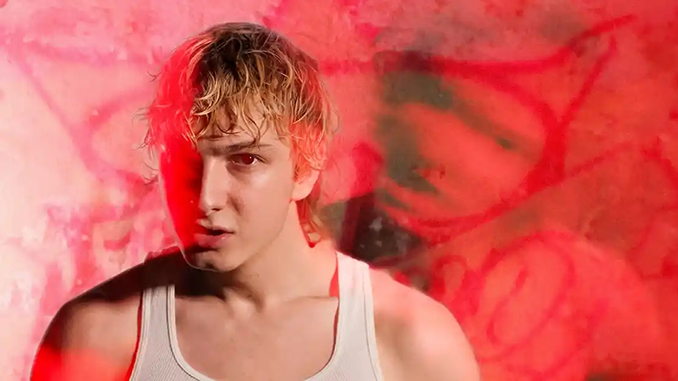Conceived and Directed by Lucy Boon
A re-shaped queerifcation of Shakespeare’s work also dusts off a forgotten name, highlighting the queer joy evident in Elizabethan literature.
Reviewed by Justin Clarke
Qtopia Sydney, The Substation
Until 31st August, 2024
Tickets: https://events.humanitix.com/love-and-faith-and-something-unholy
Queer fever dreams inflitrate two classic texts, Shakespeare’s Measure for Measure and John Lyly‘s Galatea, in a production which queerifies the two, meshing them together to create something inherently new, yet familiar. Directed by Lucy Boon, the cast of six performers take the dense texts with gutso, hilarity and drama, with the undercurrents of queer joy pulsating throughout.
We first enter 1588 in Galatea, where Galatea and Phillida escape to the woods to be spared as sacrifices to Neptune to appease him for the destrustruction of his temples. There they disguise themselves as men and, in true Elizabethan fashion, fall in love with one another in their subterfuge. Meanwhile, the love God, Cupid runs amock as the Goddess Diana hunts in the woods, mourning the loss of the chaste that will be sacrificed.
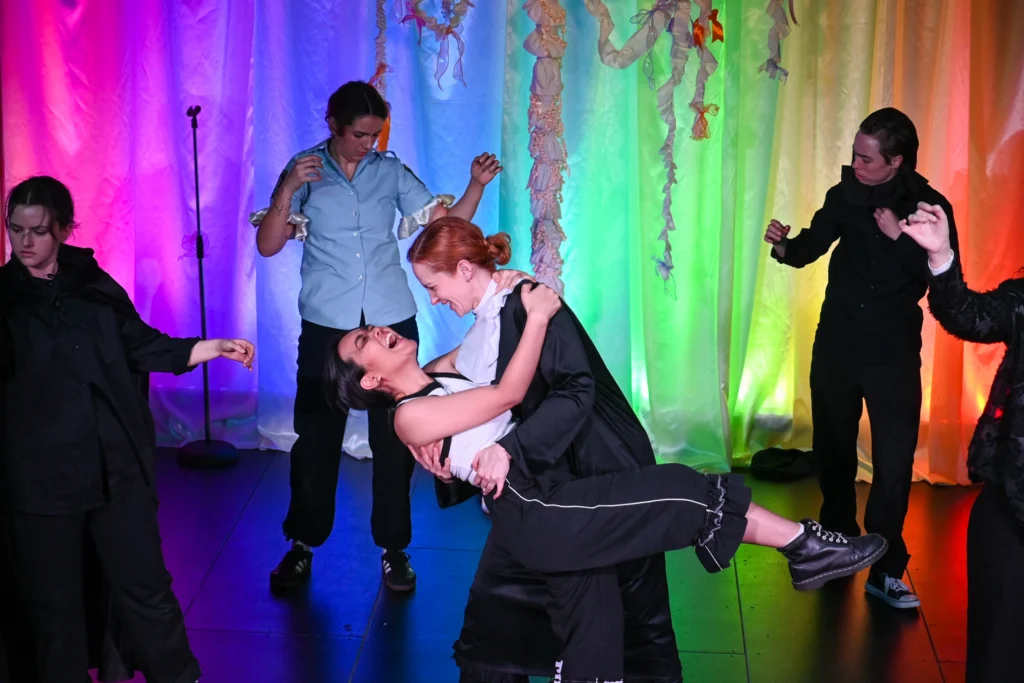
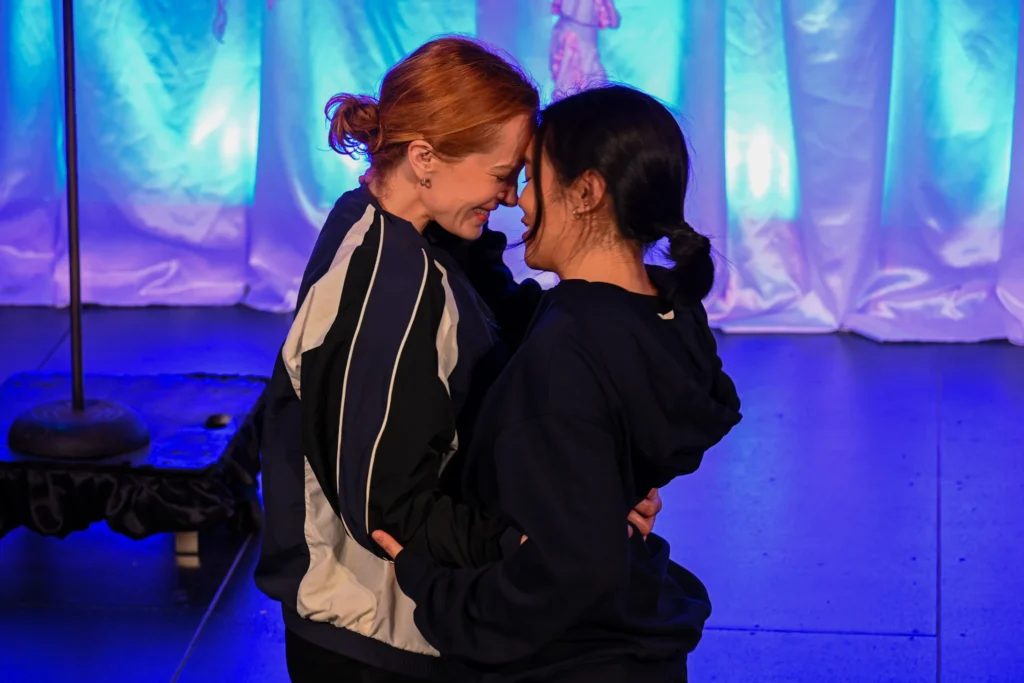
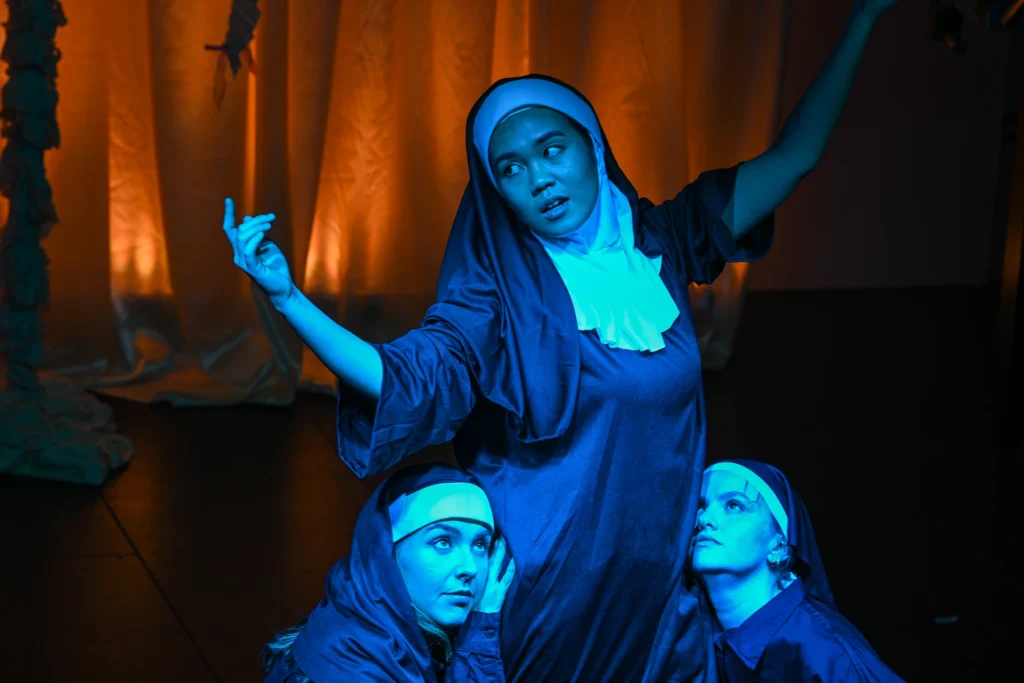
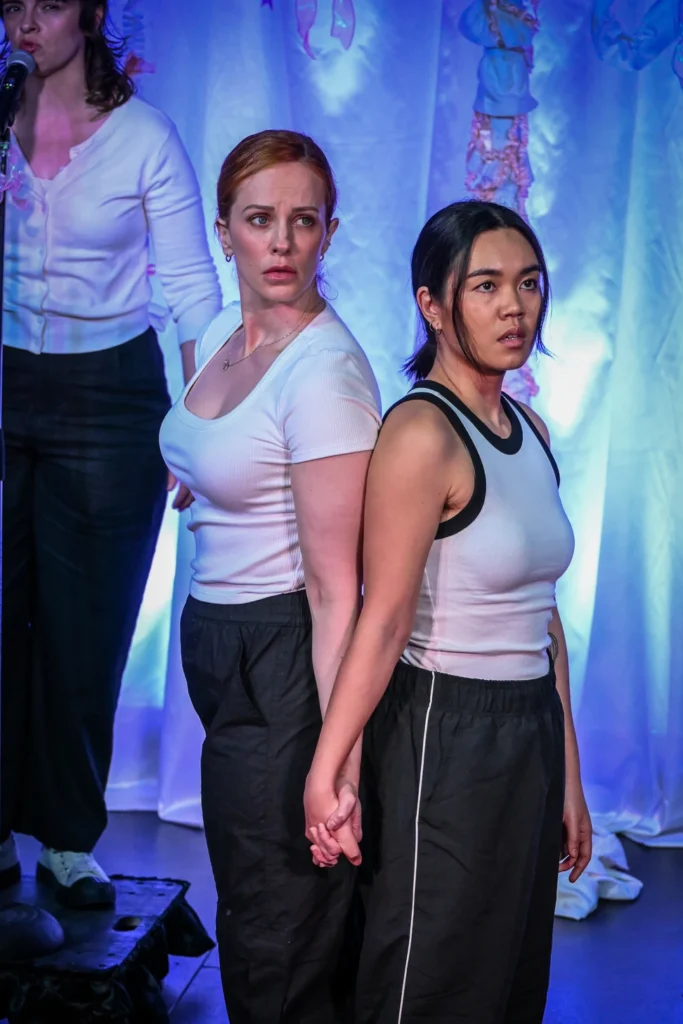
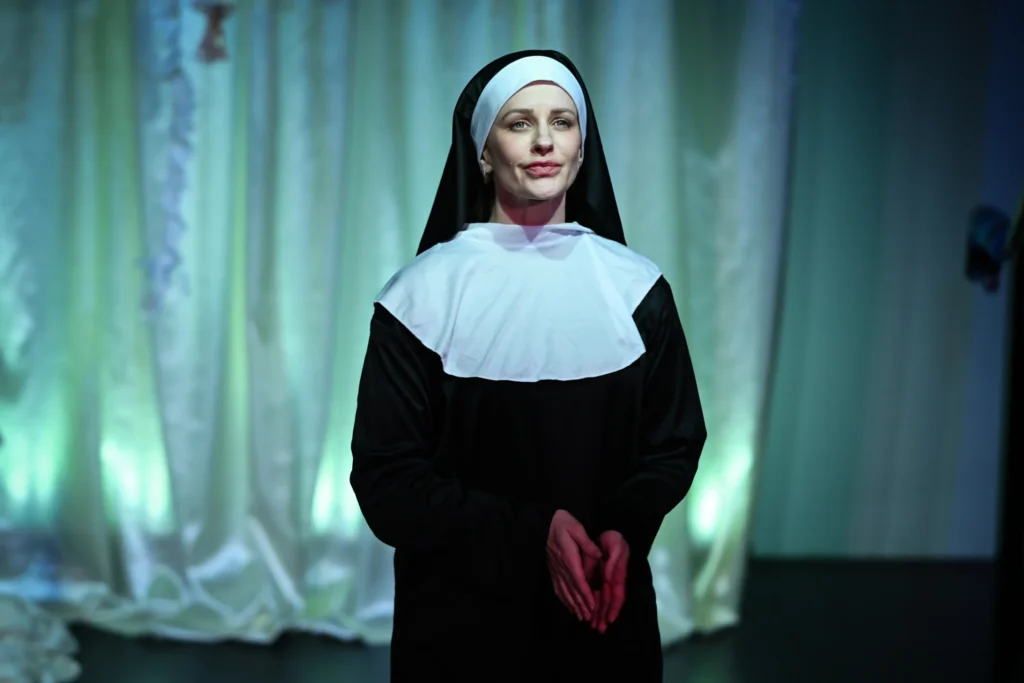
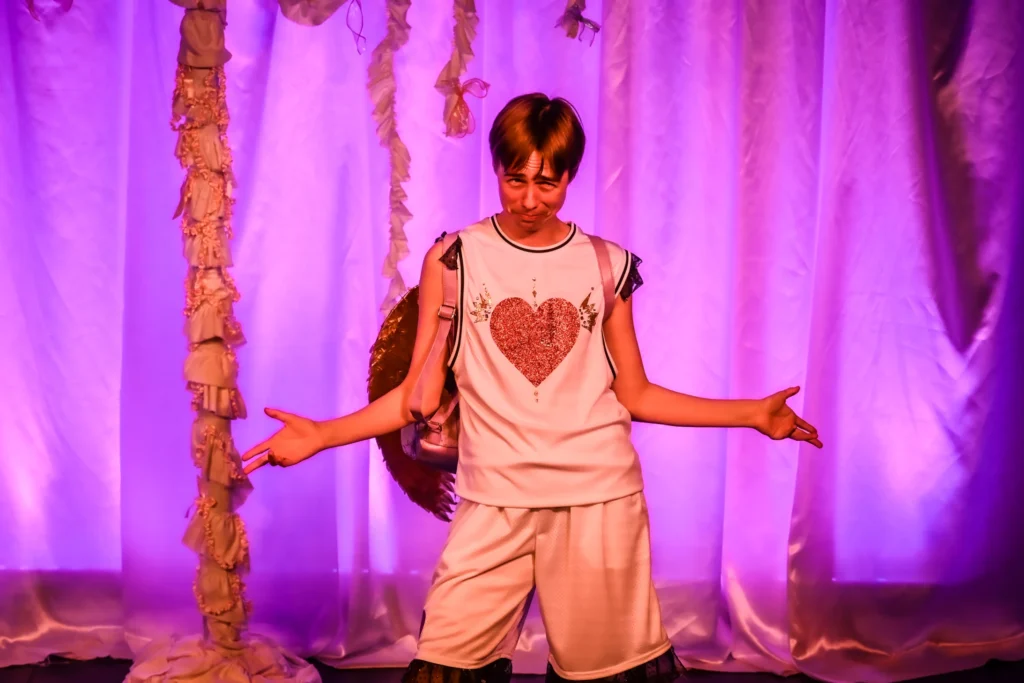
Love & Faith (and something unholy), Qtopia (2024). Images by Justin Clarke Creative
Lyly himself is a name (it can be argued) many are unfamiliar with, having been extremely popular before being overshadowed by one William Shakespeare a few decades later. In reviving this lesser performed text, Boon highlights the queer joy that was inherent in Elizabethan texts, showing that queer identity and stories have been told for hundreds of years. Indeed, the fact that the patriarchal society forbid women to perform on the stage, ultimately lends these texts to a queer interpretation or re-interpretation, which has become a staple for most modern retellings of Elizabethan texts.
After a fun bit of drag – the feature artist changing each night – which breaks up the show, we’re thrust into a darker world in 1604 in Shakespeare’s Measure for Measure. Whilst this mid-show drag piece was celebratory and fun, particularly given the Oxford St energy which bleeds through the walls, it disrupted the flow of the piece established.
…a unique look at an era of literature that is smothered in Shakespeare, offering a modern re-interpretation of Elizabethan writers
Measure for Measure here has been gutted to fit into the runtime of the piece, taking only the important pieces of the plot and uses them to echo the joyous queer world that was left behind. A puritanical, patriarchal state of Vienna has taken the space as we follow Isabella, a devoted Nun who becomes the object of Angelo, a judge who is placed in charge of Vienna by Duke Vincentio, who steps away to spy on Angelo’s use of such gifted power.
This is classed as one of Shakespeare’s problem plays, mainly due to the ambiguity in its writing. It’s not comedic enough to be a comedy and the situations lends itself to a dramatic tone, which is the lens in which Boon positions the work. There’s a queer energy brought to Isabella’s tale as we see her affections to another unnamed Sister. The change in costumes – head to toe habits and black, muted cloaks – eradicates the queer utopia which came before it. In short, Boon highlights the erasure of queer culture that exists in literature.
There are echoes throughout Measure for Measure that harken back to the queer utopia established in Galatea. This could have been utilised further to truly mesh the two worlds, especially as the ending sought to bring the two to some common intersection.
High flung passion and godly characterisation pairs smoothly with dramatic religious state drama
Love and Faith succeeds in capturing the essence of each text. Galatea is joyous fun, with James Wallis‘ lighting design utilising the colours of the pride flag throughout, which pairs well with the drag elements such as hit songs from queer culture utilised. Whereas Measure for Measure is darker, utilising shades and dark hues of red and green to constrict the space in The Substation.
Acoustic Theatre Troupe give a unique look at an era of literature that is smothered in Shakespeare, offering a modern re-interpretation of Elizabethan writers. High flung passion and godly characterisation pairs smoothly with dramatic religious state drama to bring theatre worth seeing on your journey down Sydney’s Oxford Street.
Cast
CLAY CRIGHTON – CUPID, ANGELO
AISLING DE LAHUNT – GALATEA, ISABELLA
JEMIMA HARTLEY – NYMPH, HEBE, LUCIO, MARIANA
CYPRIANA SINGH – DIANA, CLAUDIA
MǍY TRẦN – PHILLIDA
CARA WHITEHOUSE – VENUS, THE DUKE
Creatives
ATLAS ANDREWS – STAGE MANAGER
KATE BEERE – SET AND COSTUME DESIGNER
BEATRIX BOON – PRODUCTION ASSISTANT
LUCY BOON – DIRECTOR
DOM PARKER – COMPOSER
SHONDELLE PRATT – INTIMACY COORDINATOR
MIRIAM SLATER- MOVEMENT DIRECTOR
JAMES WALLIS – LIGHTING DESIGNER


